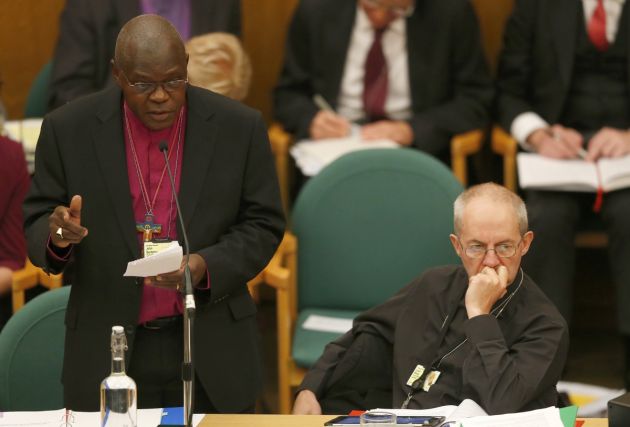England's Anglican leaders recall 'lasting damage' as well as renewal from Reformation

The Church of England's two most senior clerics Archbishop Justin Welby and Archbishop John Sentamu have issued a statement recalling "the lasting damage" 500 years after the Reformation.
They issued their statement ahead of the Week of Prayer for Christian Unity 2017, which started Jan. 18.
"The Reformation was a process of both renewal and division amongst Christians in Europe," Welby and Sentamu said.
"In this Reformation Anniversary year, many Christians will want to give thanks for the great blessings they have received to which the Reformation directly contributed," they say.
However they note, "Many will also remember the lasting damage done five centuries ago to the unity of the Church, in defiance of the clear command of Jesus Christ to unity in love.
"Those turbulent years saw Christian people pitted against each other, such that many suffered persecution and even death at the hands of others claiming to know the same Lord.
"A legacy of mistrust and competition would then accompany the astonishing global spread of Christianity in the centuries that followed. All this leaves us much to ponder."
The bishop say that the commemoration should include a clear proclamation of the gospel of grace, the availability of the Bible to all in their own language and the recognition of the calling of lay people to serve God in the world and in the church.
LUTHER'S 95 THESES
The Reformation in Europe, is seen as starting with Catholic priest Martin Luther nailed 95 Theses against a church door in Wittenberg, Germany protesting against practices such as indulgences seen as a way of buying a way into heaven.
It took place on Oct. 31 1517 at Wittenberg and the Church of England will participate in various ways, including sharing in events with Protestant church partners from Continental Europe.
On Oct. 31 last year, Pope Francis and the General Secretary of The Lutheran World Federation Rev. Martin Junge jointly preached at the same altar in an ecumenical ceremony commemorating the Reformation 500 years ago.
"We have the opportunity to mend a critical moment of our history by moving beyond the controversies and disagreements that have often prevented us from understanding one another," Francis said in his sermon in Lund on Oct. 31
"We acknowledge that there is much more that unites us than that which separates us. We are branches of the same vine. We are one in Baptism," said Junge.
Institutional Anti-Catholicism in the United Kingdom had its origins in the English and Irish Reformations under King Henry VIII and the Scottish Reformation led by John Knox, following persecution of Protestants before that.
The Act of Supremacy 1534 declared the English crown to be "the only supreme head on earth of the Church in England" in place of the Pope, says Wikipedia.
Any act of allegiance to the Pope was considered treasonous because the papacy claimed both spiritual and political power over its followers.
The Scottish Reformation in 1560 abolished Catholic ecclesiastical structures and rendered Catholic practice illegal in Scotland. Today, anti-Catholicism is common in peripheral areas of the United Kingdom, mainly Scotland and Northern Ireland, says Wikipedia.
Anti-Catholicism among many of the English was grounded in the fear that the Pope sought to reimpose not just religio-spiritual authority over England but also secular power in alliance with its arch-enemy France or Spain.